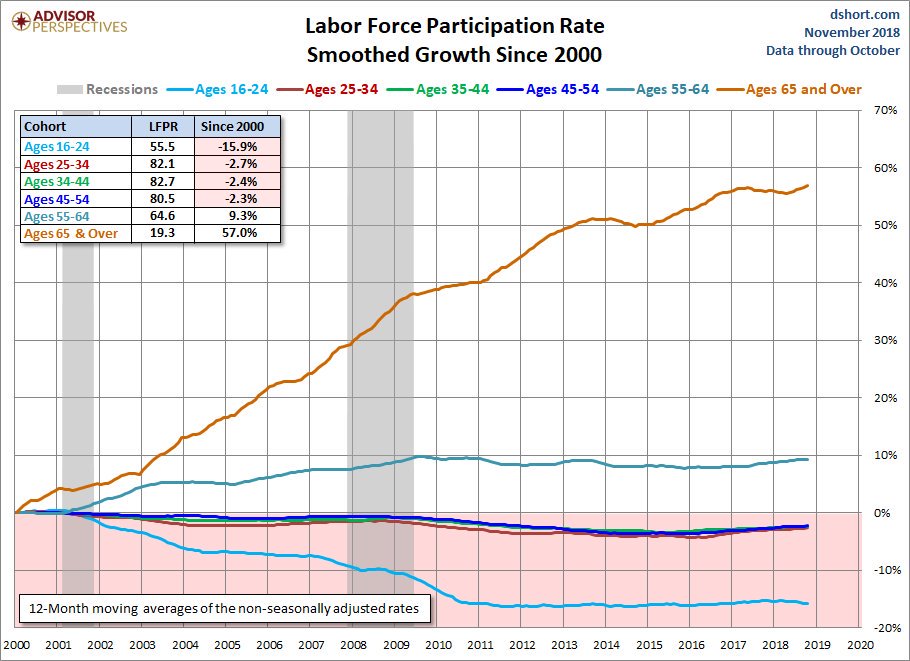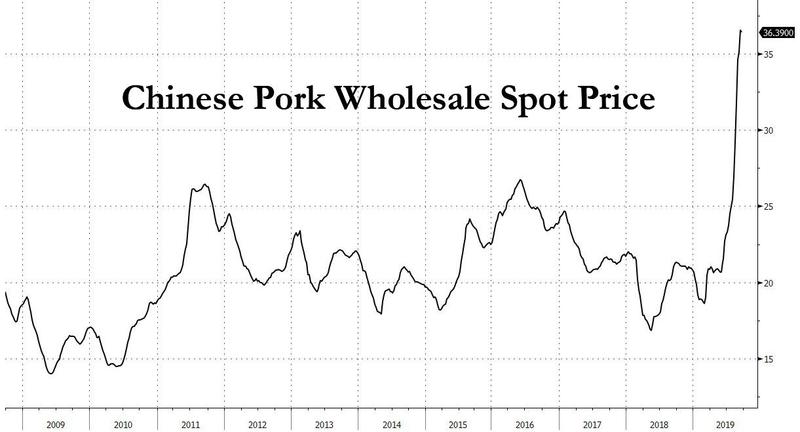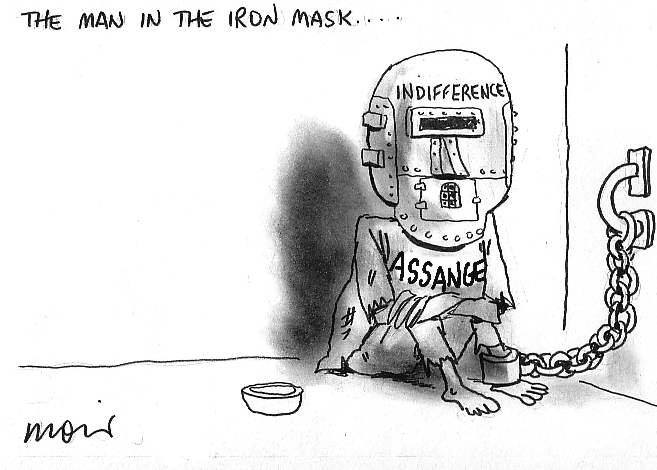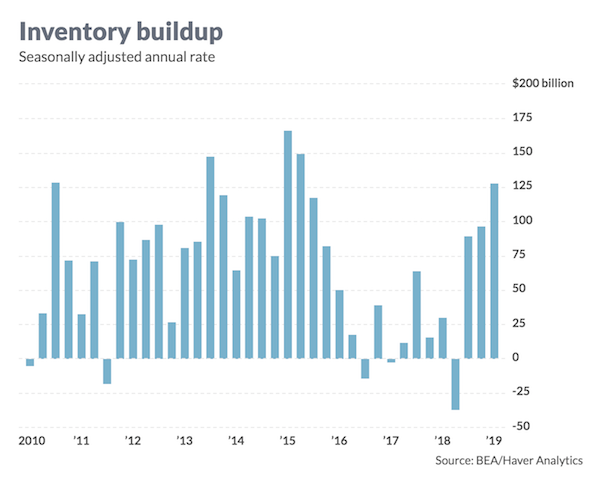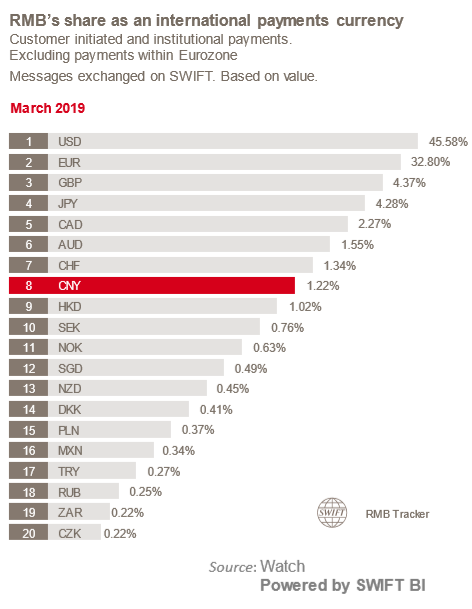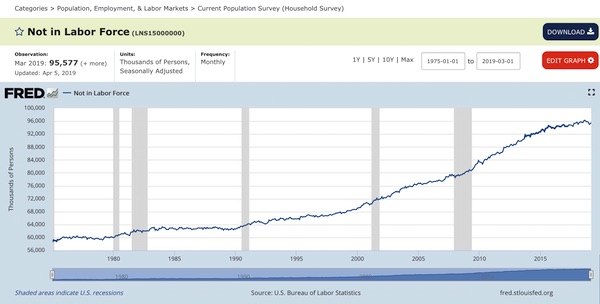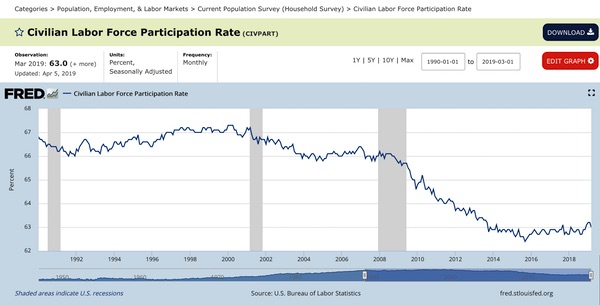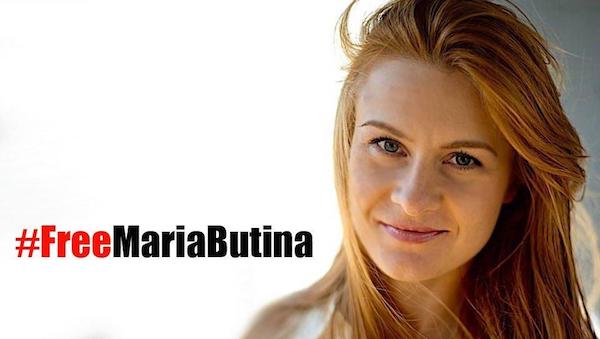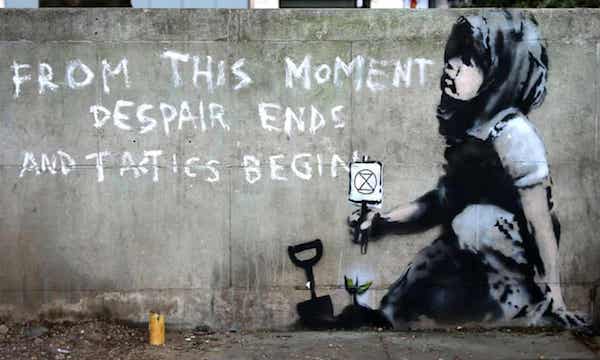
Whatever happened to Nancy?

A slow quarter for French arms sales?
• NATO Alliance Experiencing Brain Death, Says Macron (BBC)
President Emmanuel Macron of France has described Nato as “brain dead”, stressing what he sees as waning commitment to the transatlantic alliance by its main guarantor, the US. Interviewed by the Economist, he cited the US failure to consult Nato before pulling forces out of northern Syria. He also questioned whether Nato was still committed to collective defence. German Chancellor Angela Merkel, a key ally, said she disagreed with Mr Macron’s “drastic words”.
Russia, which sees Nato as a threat to its security, welcomed the French president’s comments as “truthful words”. Nato, which celebrates 70 years since its founding at a London summit next month, has responded by saying the alliance remains strong. “What we are currently experiencing is the brain death of Nato,” Mr Macron told the London-based newspaper. He warned European members that they could no longer rely on the US to defend the alliance, established at the start of the Cold War to bolster Western European and North American security.

Oh wait, it’s time to play good cop bad cop. Gotcha.
• Merkel & Stoltenberg Slam Macron’s ‘Brain-Dead NATO’ Comment (RT)
NATO is alive and well and integral to Europe’s security, German chancellor Angela Merkel and NATO Secretary Jens Stoltenberg have insisted, hitting back at French President Emmanuel Macron’s claim the alliance is “brain-dead.” Macron’s “drastic words” were “unnecessary, even if we do have problems and must get it together,” Merkel complained at a Berlin news conference on Thursday, insisting the “transatlantic partnership is indispensable for us.” Stoltenberg backed her up, declaring “European unity cannot replace transatlantic unity,” and warning that the EU cannot defend Europe without outside assistance. When the UK finally leaves the alliance, some 80 percent of NATO’s defense will be funded by non-EU countries, he warned.
The general secretary praised Germany as “the heart of NATO” and lauded Merkel’s government for boosting its military spending. With most of NATO’s member countries failing to chip in their promised 2 percent of GDP, Germany announced on Thursday it hopes to hit that target for the first time by 2031 – seven years later than the date agreed upon by the alliance’s members in 2014. That fervent defense of the military bloc’s image hardly addressed the problems brought up by Macron, though. Macron had urged France’s fellow NATO members to “reassess the reality of what NATO is in light of the commitment of the United States” in an interview with The Economist published Thursday, suggesting “we are currently experiencing the brain-death of NATO” and lamenting that Europe was losing its grip on its “destiny.”
After the US’ unilateral decision to pull troops out of Syria without consulting the rest of NATO, Europe can hardly trust the Americans to defend it, Macron suggested.

I think it’s the Fed, not Apple.
• Big Tech Is Dragging Us Towards The Next Financial Crash (G.)
In every major economic downturn in US history, the ‘villains’ have been the ‘heroes’ during the preceding boom,” said the late, great management guru Peter Drucker. I cannot help but wonder if that might be the case over the next few years, as the United States (and possibly the world) heads toward its next big slowdown. Downturns historically come about once every decade, and it has been more than that since the 2008 financial crisis. Back then, banks were the “too-big-to-fail” institutions responsible for our falling stock portfolios, home prices and salaries. Technology companies, by contrast, have led the market upswing over the past decade. But this time around, it is the big tech firms that could play the spoiler role.
You wouldn’t think it could be so when you look at the biggest and richest tech firms today. Take Apple. Warren Buffett says he wished he owned even more Apple stock. (His Berkshire Hathaway has a 5% stake in the company.) Goldman Sachs is launching a new credit card with the tech titan, which became the world’s first $1tn market-cap company in 2018. But hidden within these bullish headlines are a number of disturbing economic trends, of which Apple is already an exemplar. Study this one company and you begin to understand how big tech companies – the new too-big-to-fail institutions – could indeed sow the seeds of the next crisis. No matter what the Silicon Valley giants might argue, ultimately, size is a problem, just as it was for the banks. This is not because bigger is inherently bad, but because the complexity of these organisations makes them so difficult to police. Like the big banks, big tech uses its lobbying muscle to try to avoid regulation. And like the banks, it tries to sell us on the idea that it deserves to play by different rules.
Consider the financial engineering done by such firms. Like most of the largest and most profitable multinational companies, Apple has loads of cash – around $210bn at last count – as well as plenty of debt (close to $110bn). That is because – like nearly every other large, rich company – it has parked most of its spare cash in offshore bond portfolios over the past 10 years. This is part of a Kafkaesque financial shell game that has played out since the 2008 financial crisis. Back then, interest rates were lowered and central bankers flooded the economy with easy money to try to engineer a recovery. But the main beneficiaries were large companies, which issued lots of cheap debt, and used it to buy back their own shares and pay out dividends, which bolstered corporate share prices and investors, but not the real economy. The Trump corporate tax cuts added fuel to this fire. Apple, for example, was responsible for about a quarter of the $407bn in buy-backs announced in the six months or so after Trump’s tax law was passed in December 2017 – the biggest corporate tax cut in US history.

Will future history books recognize that the Fed collapsed the economy, or will they say it happened DESPITE their genius interventions?
• Fed Goes Nuts with Repos & T-Bills but Sheds Mortgage Backed Securities (WS)
Total assets on the Fed’s balance sheet, released today, jumped by $94 billion over the past month through November 6, to $4.04 trillion, after having jumped $184 billion in September. Over those two months combined, as the Fed got suckered by the repo market, it piled $278 billion onto it balance sheet, the fastest increase since the post-Lehman month in late 2008 and early 2009, when all heck had broken loose – this is how crazy the Fed has gotten trying to bail out the crybabies on Wall Street:
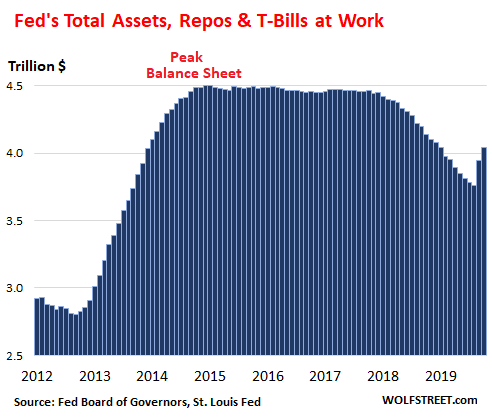
In response to the repo market blowout that recommenced in mid-September, the New York Fed jumped back into the repo market with both feet. Back in the day, it used to conduct repo operations routinely as its standard way of controlling short-term interest rates. But during the Financial Crisis, the Fed switched from repo operations to emergency bailout loans, zero-interest-rate policy, QE, and paying interest on excess reserves. Repos were no longer needed to control short-term rates and were abandoned.
Then in September, as repo rates spiked, the New York Fed dragged its big gun back out of the shed. With the repurchase agreements, the Fed buys Treasury securities and mortgage-backed securities guaranteed by Fannie Mae and Freddie Mac, or Ginnie Mae, and hands out cash. When the securities mature, the counter parties are required to take back the securities and return the cash plus interest to the Fed. Since then, the New York Fed has engaged in two types of repo operations: Overnight repurchase agreements that unwind the next business day; and multi-day repo operations, such as 14-day repos, that unwind at maturity, such as after 14 days.
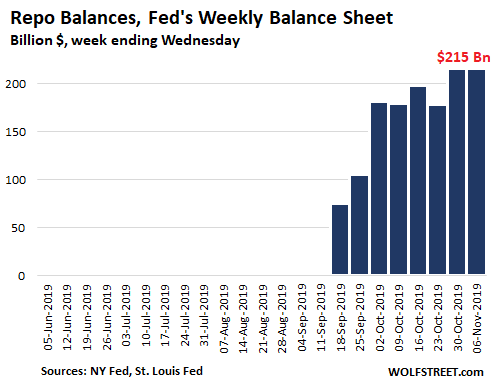

“Vindman’s concern is all about Ukraine without any explanation of why the United States would benefit from bilking the taxpayer to support a foreign deadbeat one more time. ”
• Colonel Vindman Is an ‘Expert’ With an Agenda (Giraldi)
Washington inside-the-beltway and the Deep State choose to blame the mess in Ukraine on Russian President Vladimir Putin and the established narrative also makes the absurd claim that the political situation in Kiev is somehow important to US national security. The preferred solution is to provide still more money, which feeds the corruption and enables the Ukrainians to attack the Russians. Colonel Vindman, who reported to noted hater of all things Russian Fiona Hill, who in turn reported to By Jingo We’ll Go To War John Bolton, was in the middle of all the schemes to bring down Russia. His concern was not really over Trump vs. Biden. It was focused instead on speeding up the $380 million in military assistance, to include offensive weapons, that was in the pipeline for Kiev.
And assuming that the Ukrainians could actually learn how to use the weapons, the objective was to punish the Russians and prolong the conflict in Donbas for no reason at all that makes any sense. Note the following additional excerpt from Vindman’s prepared statement: “….I was worried about the implications for the US government’s support of Ukraine…. I realized that if Ukraine pursued an investigation into the Bidens and Burisma, it would likely be interpreted as a partisan play which would undoubtedly result in Ukraine losing the bipartisan support it has thus far maintained.” Vindman’s concern is all about Ukraine without any explanation of why the United States would benefit from bilking the taxpayer to support a foreign deadbeat one more time.
One wonders if Vindman was able to compose his statement without a snicker or two intruding. He does eventually go on to cover the always essential national security angle, claiming that “Since 2008, Russia has manifested an overtly aggressive foreign policy, leveraging military power and employing hybrid warfare to achieve its objectives of regional hegemony and global influence. Absent a deterrent to dissuade Russia from such aggression, there is an increased risk of further confrontations with the West. In this situation, a strong and independent Ukraine is critical to US national security interests because Ukraine is a frontline state and a bulwark against Russian aggression.”

“Burisma’s own American legal team was lobbying State to help eliminate the corruption allegations against it in Ukraine.”
• Obama Admin Tried To Partner With Hunter Biden’s Ukraine Gas Firm (Solomon)
A State Department official who served in the U.S. embassy in Kiev told Congress that the Obama administration tried in 2016 to partner with the Ukrainian gas firm that employed Hunter Biden but the project was blocked over corruption concerns. George Kent, the former charge d’affair at the Kiev embassy, said in testimony released Thursday that the State Department’s main foreign aid agency, known as USAID, planned to co-sponsor a clean energy project with Burisma Holdings, the Ukrainian gas firm that employed Hunter Biden as a board member. At the time of the proposed project, Burisma was under investigation in Ukraine for alleged corruption. Those cases were settled in late 2016 and early 2017. Burisma contested allegations of corruption but paid a penalty for tax issues.
Kent testified he personally intervened in mid-2016 to stop USAID’s joint project with Burisma because American officials believed the corruption allegations against the gas firm raised concern. “There apparently was an effort for Burisma to help cosponsor, I guess, a contest that USAID was sponsoring related to clean energy. And when I heard about it I asked USAID to stop that sponsorship,” Kent told lawmakers. When asked why he intervened, he answered: “”Because Burisma had a poor reputation in the business, and I didn’t think it was appropriate for the U.S. Government to be co-sponsoring something with a company that had a bad reputation.”
[..] And internal State memos I obtained this week under FOIA show Hunter Biden and Archer had multiple contacts with Secretary of State John Kerry and Deputy Secretary Tony Blinken in 2015-16, and that Burisma’s own American legal team was lobbying State to help eliminate the corruption allegations against it in Ukraine. Hunter Biden’s name was specifically invoked as a reason why State officials should assist, the memos show. A month after Burisma’s contact with State, Joe Biden leveraged the threat of withholding U.S. foreign aid to force Ukraine to fire its chief prosecutor, Viktor Shokin, who at the time was overseeing the Burisma probe.

Yes, worrying.
• Assange Lawyers’ Links To US Govt & Bill Browder (Komisar)
Now look at another Assange link. Mark Summers, who is representing Julian Assange is, along with Bailin, a member of Matrix Chambers. But while he is Assange’s lawyer, Summers is acting for Assange’s persecutor, the U.S. government, in a major extradition case involving executives of Credit Suisse in 2013 making fake loans and getting kickbacks from Mozambique government officials. Does Assange, or those who care about his interests, know he is part of chambers working for the U.S. government? And where do you put this factoid? Alex Bailin is representing Andrew Pearse, one of the Credit Suisse bankers that the U.S. government, represented by Summers, is seeking to extradite!
But there’s chambers where two members are each supporting both Browder and Assange. Geoffrey Robertson is founder of Doughty Street Chambers. He is also a longtime Browder / Magnitsky story promoter. He has pitched implementation of a Magnitsky Act in Australia and has served Browder in UK court. In 2017 British legal actions surrounding an inquest into the death of Alexander Perepilichnyy, he represented Browder, who claimed that the Russian, who died of a heart attack, was somehow a victim of Russian President Putin. Perepilichnyy had lost money in investments he was handling for clients and had to get out of town.
Needing support, he decamped to London and gave Browder documents relating to his client’s questionable bank transfers. He died after a jog, Browder claimed he was poisoned by a rare botanical substance, obviously ordered by Putin, but forensic tests found that untrue. Robertson accused local police of a cover-up. He is a legal advisor to Assange and is regularly interviewed by international media about the case. Jennifer Robinson of Doughty Street Chambers also has a Browder connection. She is acting for Paul Radu a journalist and official of the Organized Crime and Corruption Reporting Project (OCCRP) which is being sued by an Azerbaijan MP. OCCRP is a Browder collaborator.
Browder admits in a deposition that OCCRP prepared documents he would give to the U.S. Justice Department to accuse the son of a Russian railway official of getting $1.9 million of $230 million defrauded from the Russian Treasury. The case was settled when the U.S. couldn’t prove the charge, and the target declined to spend more millions of dollars in his defense. OCCRP got the first Magnitsky Human Rights award, set up for Browder’s partners and acolytes. Robinson is also the longest-serving member of Assange’s legal team. She acted for Assange in the Swedish extradition proceedings and in relation to Ecuador’s request to the Inter-American Court of Human Rights Advisory Opinion proceedings on the right to asylum.
Why did Assange or his advisors choose lawyers associated with the interests of the U.S. government and Browder? Or how could those lawyers be so ignorant about the facts of Browder’s massive tax evasion and his Magnitsky story fabrications?

Imagine a country so corrupt you can put your political counterparts on trial.
• Brazil Court Ruling Could Free Lula (BBC)
Brazil’s top court has voted to overturn a rule about the jailing of criminals – a change which could lead to ex-President Luiz Inácio Lula da Silva being freed from custody. The ruling, announced on Thursday, stipulates that convicted criminals should go to prison only after they have exhausted their appeal options. The change could lead to the release of thousands of prisoners, including Lula. The left-winger led Brazil between 2003 and 2010, but was jailed last year. He was favourite to win last year’s presidential election but was imprisoned after being implicated in a major corruption investigation.
However, even if he is released, he will be barred from standing for office because of his criminal record. Lula has consistently denied all the accusations against him and claims they are politically motivated. After he was barred from running, right-wing candidate Jair Bolsonaro went on to win the race. Lula’s lawyers say they will seek the former president’s “immediate release” after speaking to him on Friday.

And here I was thinking opposable thumbs.
• Human Population Came From Our Ability To Cooperate (PhysOrg)
Humans may owe their place as Earth’s dominating species to their ability to share and cooperate with each other, according to a new study published in the Journal of Anthropological Research. In “How There Got to Be So Many of Us: The Evolutionary Story of Population Growth and a Life History of Cooperation,” Karen L. Kramer explores the deep past to discover the biological and social underpinnings that allowed humans to excel as reproducers and survivors. She argues that the human tendency to bear many children, engage in food sharing, division of labor, and cooperative childcare duties, sets us apart from our closest evolutionary counterparts, the apes.
In terms of population numbers, few species can compare to the success of humans. Though much attention on population size focuses on the past 200 years, humans were incredibly successful even before the industrial revolution, populating all of the world’s environments with more than a billion people. Kramer uses her research on Maya agriculturalists of Mexico’s Yucatan Peninsula and the Savanna Pumé hunter-gatherers of Venezuela to illustrate how cooperative childrearing increases the number of children that mothers can successfully raise and—in environments where beneficial—even speed up maturation and childbearing. Kramer argues that intergenerational cooperation, meaning that adults help support children, but children also share food and many other resources with their parents and other siblings, is at the center of humans’ demographic success. “Together our diet and life history, coupled with an ability to cooperate, made us really good at getting food on the table, reproducing, and surviving,” Kramer writes.
[..] She found that Maya children contributed a substantial amount of work to the family’s survival, with those aged 7-14 spending on average 2 to 5 hours working each day, and children aged 15-18 spending as much as their parents, about 6.5 hours a day. Labor type varied, with younger children doing much of the childcare, older children and fathers fill in much of the day-today cost of growing and processing food and running the household. “If mothers and juveniles did not cooperate, mothers could support far fewer children over their reproductive careers,” Kramer writes. “It is the strength of intergenerational cooperation that allows parents to raise more children than they would otherwise be able to on their efforts alone.”

